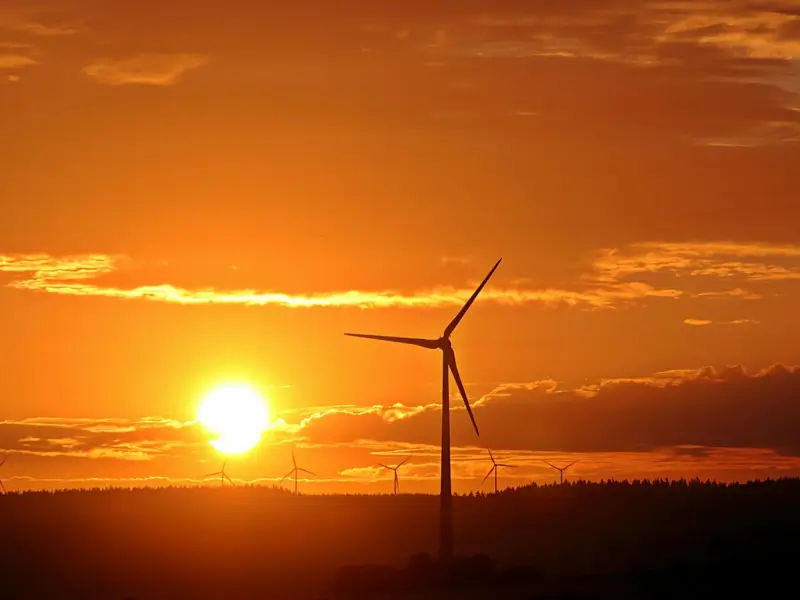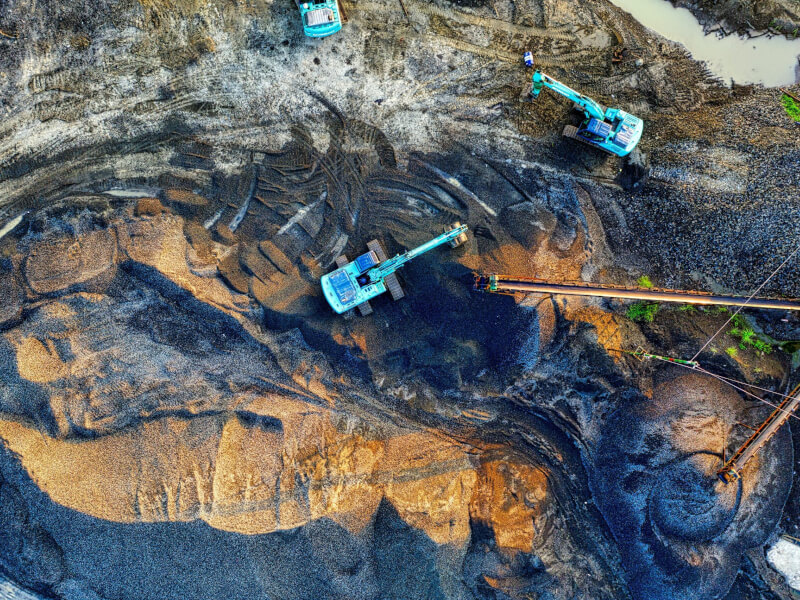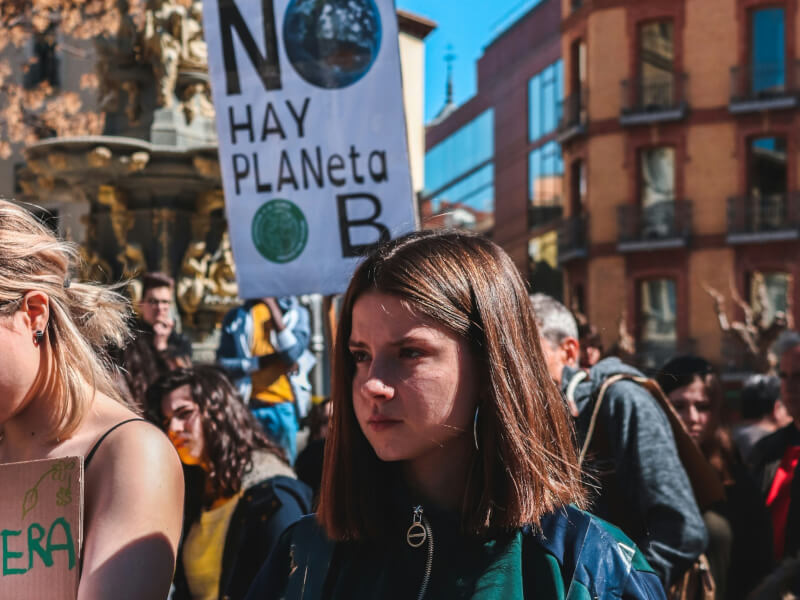29 July 2025 – The authors of a new Earth4All deep-dive paper argue that we must address the material footprint of our economies to place human wellbeing within planetary boundaries at their centre.
In recent months, resources have made their way back into global headlines. From debates around access to critical minerals for clean technologies to geopolitical tensions over raw material dependencies, the issue has returned to the political spotlight. When Donald Trump proposed expanding fossil fuel extraction in Alaska or reignited talk of purchasing Greenland for its mineral wealth, many dismissed it as political theatre – but these moments point to something deeper that requires our attention: namely, the topic of increasingly aggressive competition for global resources (such as critical metals for the energy transition and digitalisation), and related aspects of consumption.
Resource extraction and material use are central drivers of today’s social and ecological crises. Extraction and processing of materials account for around 50% of global greenhouse gas emissions, 90% of biodiversity loss and a third of particulate matter air pollution.
At the same time, the consumption of these resources is highly unequal – both on a global scale and within countries. High-income countries consume up to ten times more resources per capita than low-income countries. Yet most existing policies barely address these material drivers of crisis. Instead, they tend to focus on economic growth and improving competitiveness – or, in the case of environmental policies, on energy sector decarbonisation or efficiency improvements. This is despite the fact that fostering only so-called future sectors, as well as an isolated and badly manged energy transition to net zero, might just shift the problem to a material crisis.
A narrow focus is therefore insufficient. The material footprint of our economies must be addressed directly, or the impacts will continue to worsen – even in a fully decarbonised energy system.
From “more” to “enough” – from inequality to a just transition
Over the past fifty years, global resource use has more than tripled. Without urgent intervention, it is set to double again by 2060. That trajectory will push us well beyond planetary boundaries – undermining climate goals, destroying ecosystems, accelerating inequality and threatening future wellbeing for all.
What is needed is a shift from extractive, growth-oriented economic models toward sufficiency, circularity, and intelligent and just provisioning systems. These systems must be designed not to maximise throughput, but to deliver human wellbeing within ecological limits.
Rethinking how we meet human needs
A new Earth4All deep-dive paper on resource use LINK highlights that material use is not only driven by individual behaviour, but also by structural conditions: how cities are built, how mobility systems are designed, how products are produced and disposed of and how access to resources is distributed.
In fact, the sectors with the highest environmental impacts are also closely tied to basic human needs – in the sense that wealthy societies define currently “human needs”. These include:
– Food systems: responsible for a third of all resource use and 50% of land use, a strong driver of which is a meat-heavy diet.
– Housing and infrastructure: material-intensive and difficult to decarbonise while living space is increasingly large.
– Mobility: increasingly resource-heavy, driven by individual and car-based transport systems.
- Energy: high demand, and responsible for the majority of CO2-emissions in most high-income countries.
Addressing these sectors through a provisioning systems lens, combined with reflection on what is sufficient and needed for a decent life, allows for context-specific, justice-oriented strategies.
Why current policy is not enough
Many existing policies aim to reduce environmental harm by improving efficiency or shifting technologies. But efficiency gains are often outpaced by increased consumption – a phenomenon known as the rebound effect. The technical pillars of efficiency and consistency must therefore be completed by sufficiency policies.
Moreover, current policies tend to be fragmented. They target individual materials or sectors without addressing systemic drivers such as global trade dynamics, unsustainable production-consumption patterns or distorted price signals that ignore ecological costs.
To move forward, we need a new policy architecture that integrates material use into the core of sustainability governance. This includes:
- Science-based targets for the reduction of material use at global and national levels
– Fostering of circular economy as central approach for a reduction of increasing extraction of primary materials
– Limitation of resource extraction and allocation of critical and scarce resources where they are socially and ecologically most beneficial
– Economic instruments like resource taxation and wealth taxes aligned with social compensation schemes and environmental goals
– Support for low-resource innovation, both in the Global North and South
The way ahead
Resource use is not only an environmental issue. Facing the necessary shift from a fossil fuel-based to a renewable energy system and further fast-growing sectors, it is increasingly a geopolitical, economic and social issue, with growing potential for conflict, socio-economic instability and systemic disruption.
Unmanaged competition for resources risks intensifying global power asymmetries, deepening existing inequalities and eroding trust in democratic institutions. At the same time, resource scarcity – if not governed fairly – could amplify social tensions and political fragmentation, especially in contexts where overconsumption and under-provisioning coexist.
A new politics of material use must therefore be anchored in justice, sufficiency and global cooperation. That means linking resource governance to broader goals: human development, social cohesion and democratic resilience.
What Earth4All proposes
Earth4All and The Club of Rome are launching a Task Force on Materials and Consumption that brings together experts from science, policy and civil society. In collaboration with the International Resource Panel, Wuppertal Institute, Hot or Cool Institute and others, this initiative will deliver:
– Systemic analysis and modelling of resource flows, drivers and impacts
– A suite of intervention pathways focused on provisioning systems and policy levers
– A flagship publication and set of implementation guides for decision-makers
– Advocacy efforts to influence processes such as the EU Circular Economy Act and post-2030 SDG framework
The aim is to shift the debate on resources: from short-term scarcity narratives to long-term structural transformation.
Download the deep-dive paper here and join the authors for a webinar on 2 September – find the details here.




